The cliques that win elections
Feb 20, 2017
Students win elections once or twice, rarely three times. Student groups, on the other hand, can win elections a lot more. Francis Underwood put it best, “Money is the McMansion in Sarasota that starts falling apart after 10 years. Power is the old stone building that stands for centuries. I cannot respect someone who doesn’t see the difference.”
I’ve looked at each campaign since 2008 to determine which groups have shown up multiple times in NISG elections and won more than once. First, let’s set aside any pejorative connotation of clique: it’s just a term for a connected group of people. Certain social circles at UNI are durable, have developed some internal culture, and maybe acquired some reputation among outsiders. Which of these are laying the foundation for the student government, and how successful are they?
I’ll be looking at the top two campaigns by vote share since 2008, counting every year in which a candidate with a clear claim to one of these cliques won out over candidates that did not. If both or neither campaigns were in a clique, that year was not counted.
There are several cliques I’ve left out for lack of success or repeated election runs. These cliques include: music majors, education majors, progressive student groups, Dance Marathon, and athletes. Members of each have run and sometimes won, but I found little evidence of a long-term record. The following are the cliques that have pulled through repeated wins in NISG since 2008.
“NISG Establishment”
Student government, despite being at the center of my illustration above, has obtained a reputation for being opaque and insular. As a member of the Organization and Finance Committee, I understand all too well how our funding decisions can dismay and offend student orgs. The committee carefully crafts its guidelines to allow every student org a fair shot at getting funds, but every time our organization has to say “no” or cap a request, that directly hurts NISG’s reputation.
Success for this clique is not causing any ire with student organizations, and its failures are pronounced and widely visible. For that reason, NISG has had enormous difficulty improving its reputation even when it has accomplished great things for student organizations.
In eight races one ticket clearly claimed this title over the others. This year both tickets are claiming substantial NISG experience, though one has a lead. This quality gives me confidence in the future of NISG, as I believe some of the most effective administrations have come from students who were familiar with the system and able to cut short the learning curve. With such short terms of office, that ability to hit the ground running is rare.
Regardless, the reputation of NISG, earned fairly or not, translates to dismal election results.
Record: 3 out of 8.
“Purple Shirts”
This term is used by insiders and NISG alums to describe the collection of campus-affiliated student organizations that aren’t student-run. If someone is a member of Connecting Alumni to Students (CATS), Student Admissions Ambassadors (SAA), or one of a litany of other groups run managed by the university, odds are they spend a lot of their time wearing a purple polo or shirt with the name of the group embossed on it.
Students ostensibly run these organizations. SAA for example, has a rigorous parliamentary process that rivals NISG’s, has an internally elected president and students select the next year’s members.
Organizations outside this clique learn the difficulty of fundraising, branding, recruiting, and leadership transitions every year. A single bad year or failed leadership transition can result in most groups falling into a death spiral. By contrast, those challenges aren’t shared by clubs in this clique. The university is directly involved in making sure these groups don’t ever have a down year or a bad transition. These groups are insulated from the largest causes of student organizations failing.
For those reasons, the term Purple Shirts can be used as a pejorative by those outside this clique. Most student leaders don’t receive institutional support like CATS and SAA do, and that has led to some resentment toward these groups. When candidates for student government promise to translate their experience in CATS and SAA to groups without that institutional support, it can seem condescending.
That said, members of these clubs interact with huge proportions of the student population. On campus tours or in organizing events with alumni, they answer the questions of hundreds of prospective and past students, lending some credibility to the idea that these candidates have their finger on the pulse of UNI. This clique is a frequent entrant to NISG elections. Does connection to the past and future of the student body lead to success? More often than not.
Record: 5 out of 8.
“Campbell Cult”
This self-described group has arisen out of a peculiar atmosphere in Campbell. Chris Miller, writing for the NISG Elections Blog in 2012, described it thusly: “In terms of pride, enthusiasm, and support for the hall and its members, the Cult dwarfs all of the other residence halls combined. However, the Cult reaches much further than the building itself. Over the years, the Cult has established itself around campus and in many major student organizations. Groups like CATS and SAA are filled with Cult members. The current executive editor for the Northern Iowan was a Cult member, too. Most noteworthy, the Interlude Dance gained its initial popularity on the fourth floor of Campbell Hall.”
The notoriety of this clique may have diminished in recent years. Though not every election features the Cult, they were defeated in 2012, 2014, and 2015. The Cult hasn’t sent one of its own to NISG’s highest office since Spencer Walrath and Ian Goldsmith in 2011.
Record: 3 out of 6.
“Business”
The College of Business Administration is uniquely centralized on campus, with a single building housing classes for a huge number of students and majors, most of whom are coached through a unique advisement structure and incentives for participating in career planning. These students have expansive résumés by the time they graduate, and Northern Iowa Student Government is one such line that shows up more than once. Because of their diversity of majors, not much else unifies the candidates that can claim to be part of this clique.
These students’ access to peers majoring in marketing, public relations, and finance surely doesn’t hurt when building their campaign teams. This has translated to a remarkable series of wins.
Record: 4 out of 6.
“Fraternity and Sorority Involvement”
To be blunt: this is a touchy subject for a lot of people. This one was left for last for one reason: fraternity and sorority members are far from the only group to be over-represented in NISG elections. Many of the above groups are much smaller and can report similar success in running for office.
The advantages to fraternity and sorority members should be obvious: these groups are large, have a variety of majors, have long institutional memories, and actively develop leadership skills within their membership. When members of these groups run for student government, they have an exceptionally easy time building their campaign team, staffing their tables with volunteers, and so on.
The elephant-in-the-room question is: is it healthy for student government to be dominated by students involved in fraternity and sorority life? It’s a complex question.
One asset for NISG is that groups in this clique are run more autonomously than that of the Purple Shirts and Campbell Cult. And they have the advantage of national leadership development and decades or even centuries of collective institutional knowledge. Those are good qualities for running a government.
I won’t address the downsides – that’s not anything I want to wade into – but I do want to address an idea I encountered during my campaign for vice president last year. More than one student at UNI asked me or relayed to volunteers with the campaign this sentiment: “Fraternities need to win elections to improve their reputations.”
This sentiment struck me as odd. If fraternities and sororities unfairly have some reputation, it isn’t from lack of leadership in student government to set the record straight. Six out of the last eight Presidents of the Student Body were involved in a fraternity or sorority. When fraternity and sorority members face competition, they usually win.
Record: 4 out of 5
(Note: Two peculiarities complicate that statistic. Sigma Phi Epsilon members Joel Anderson and Jordan Bancroft-Smithe are not counted in the record. Anderson won an uncontested election in 2010, and Jordan Bancroft-Smithe joined after winning an election in 2012. In neither election did a candidate in the clique win against candidates not in the clique.)
Where the tickets stand
Jamal White and Tristan Bernhard, running as Jamal-Tristan, have stated they have three years of NISG experience between them. They barely get to that figure if we round up. White has served in the executive office as a lower cabinet officer for less than a year, and Bernhard has served as a senator for roughly a year and a half, but their experience is on par with past candidates. White is a member of CATS and SAA, and a former resident assistant in Campbell Hall.
Maggie Miller and Danielle Massey, under their campaign of Miller & Massey, haven’t put a number on their years of service, but by the same rounding I arrived at five years. That amount of experience puts them in rarefied company. The last President and Vice President pairing to have such experience was likely Katie Evans and Paul Anderson, although Anderson was an appointee. Few tickets can claim five years of experience. Miller and Danielle clearly make the superior claim for NISG experience, and add to this their involvement in the new sorority Alpha Sigma Tau and a conspicuous number of Sigma Phi Epsilon volunteers on their campaign team.
Jamal-Tristan’s matchup is most like two past campaigns. Spencer Walrath and Ian Goldsmith had the Purple Shirts and Campbell Cult cliques behind them to claim an easy win, though Jared Heitz and Tanner Bernhard lost in a run-off despite their membership in these expansive cliques.
Miller & Massey’s situation is also like two past tickets, one more than the other. Rhonda Greenway and Adam Beaves were politically involved and campaigned on reforming UNI’s relationship with the statehouse with their NISG experience, but they lost their race. They share more similarity with Katie Evans and Renae Beard, claiming both the NISG experience and fraternity and sorority cliques.
In 2011, the Campbell Cult and Purple Shirts ticket Spencer and Ian won their election against Rhonda and Adam, though no candidates ran on their FSL involvement that year. Then in 2015, Katie and Renae won against Jared and Tanner. The parallels don’t end there — Tristan is Tanner’s brother, and Massey is Evans’s former roommate.
With that eerily similar pairing, I would expect a close election on Tuesday and Wednesday. Every vote will count, and write-ins could force the election into a grueling runoff for these two tickets. For their sake, vote!


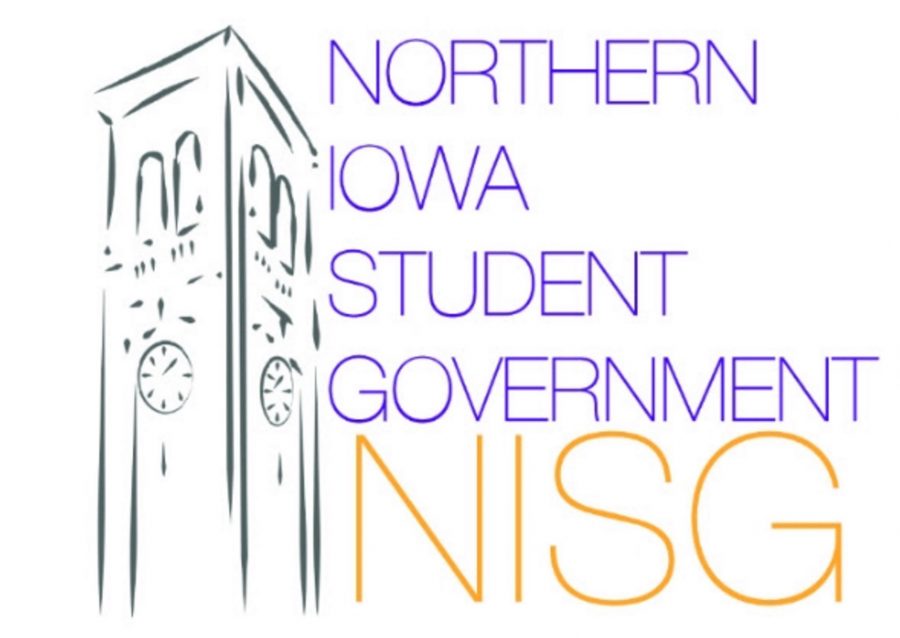






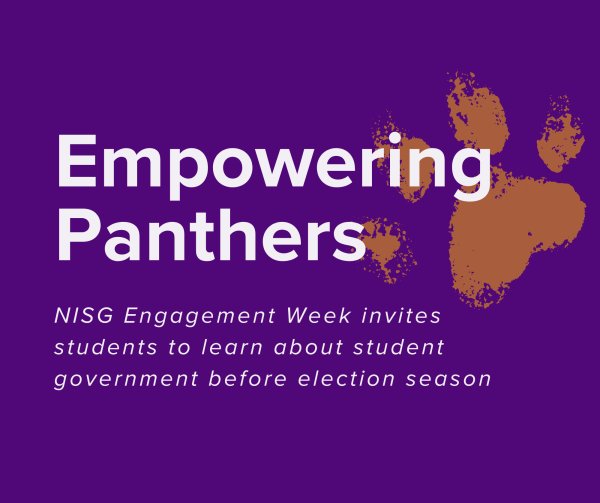
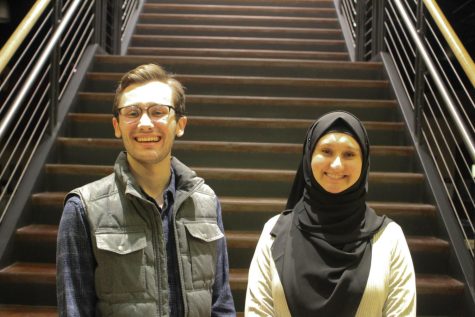
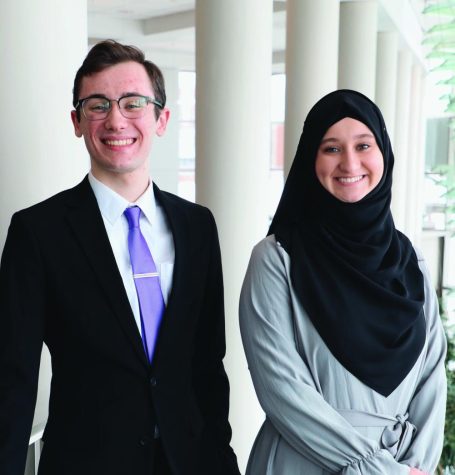
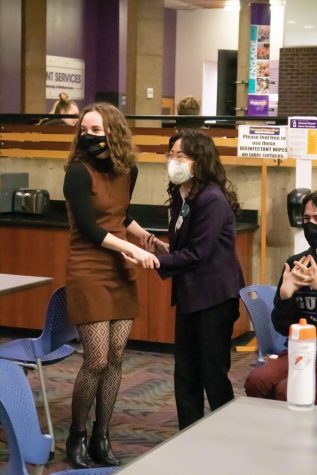
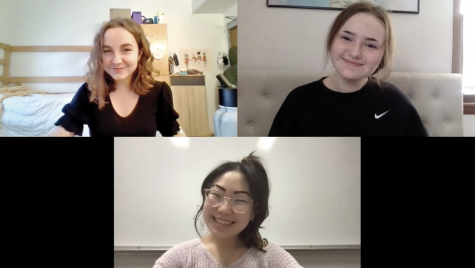
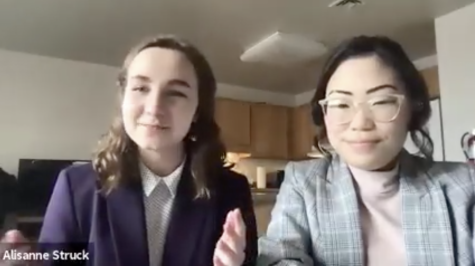
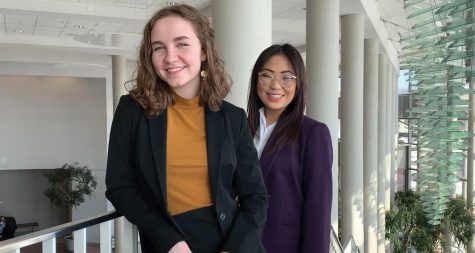
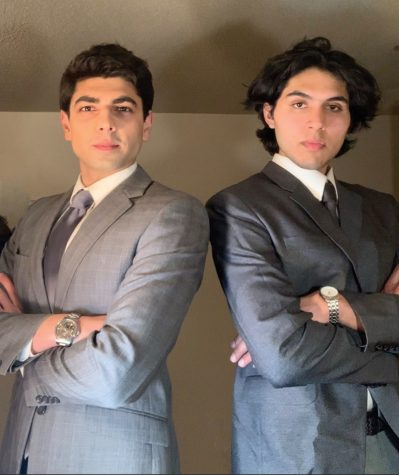
Meghan busswitz • Feb 21, 2017 at 11:46 am
I am sorry but there a few things that need to be corrected. First Jamal is still currently a RA in Campbell hall. And the members of our community are called the “cam fam” I feel like eluding that as a hall we are a cult, brings a negative connotation to being a part of a supportive and highly involved community.